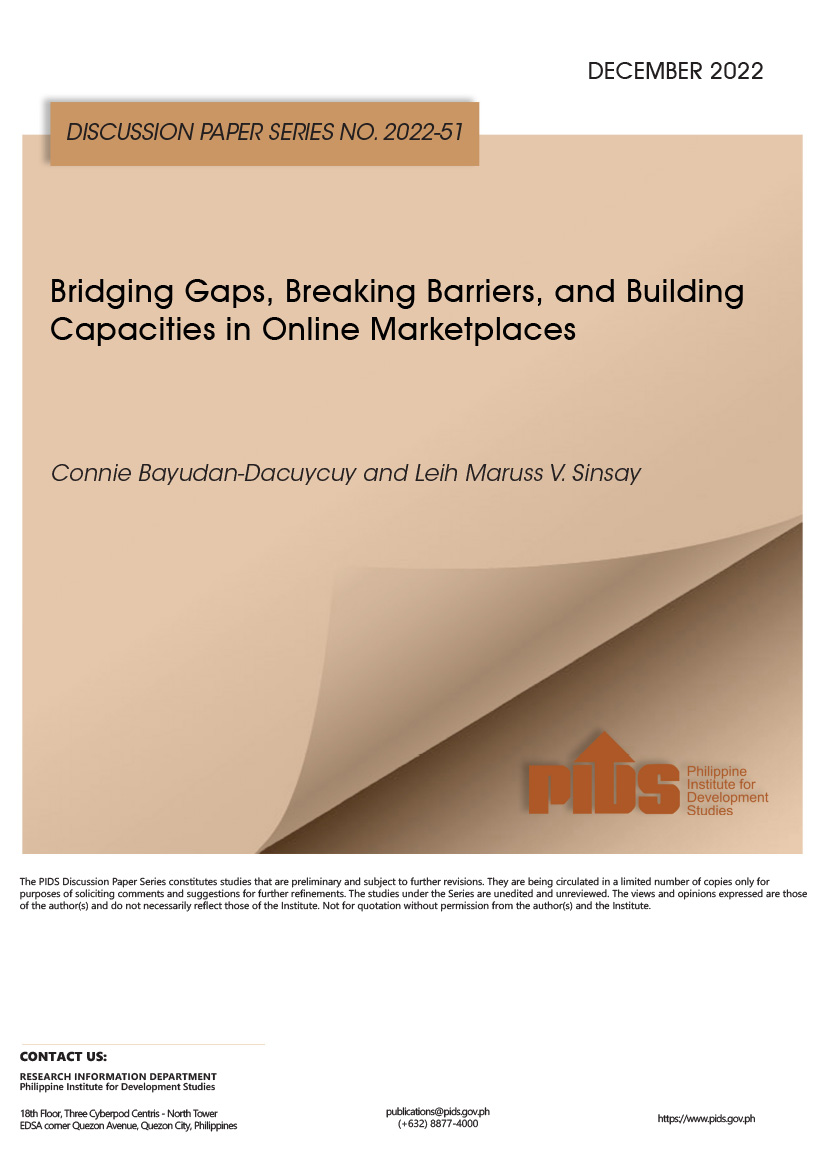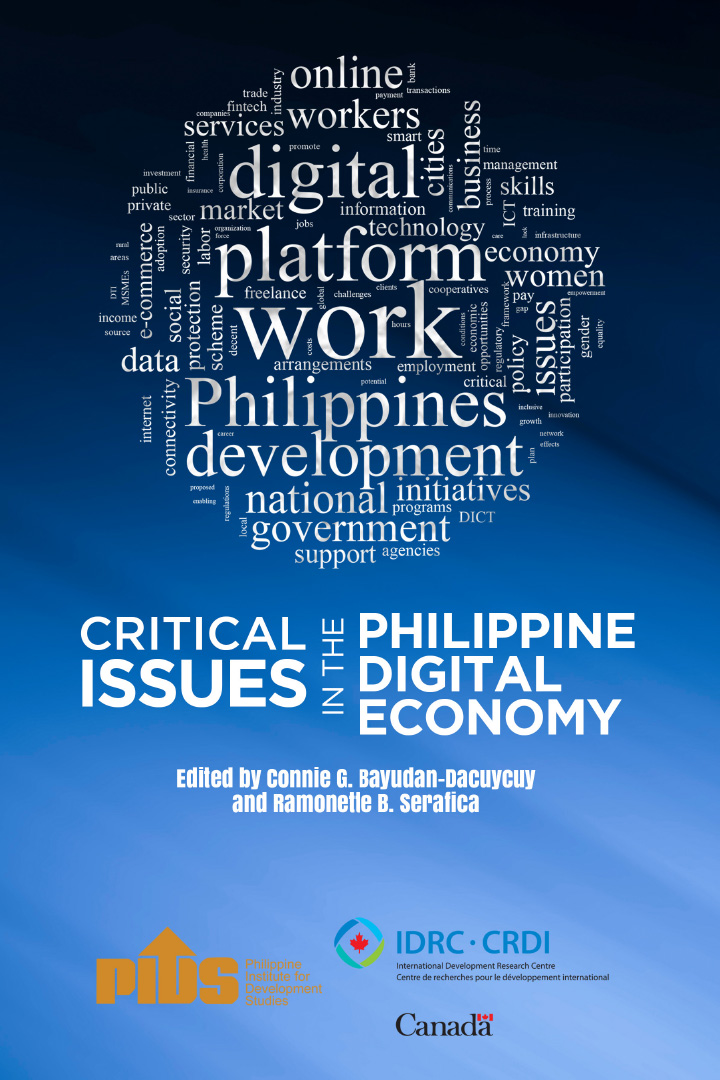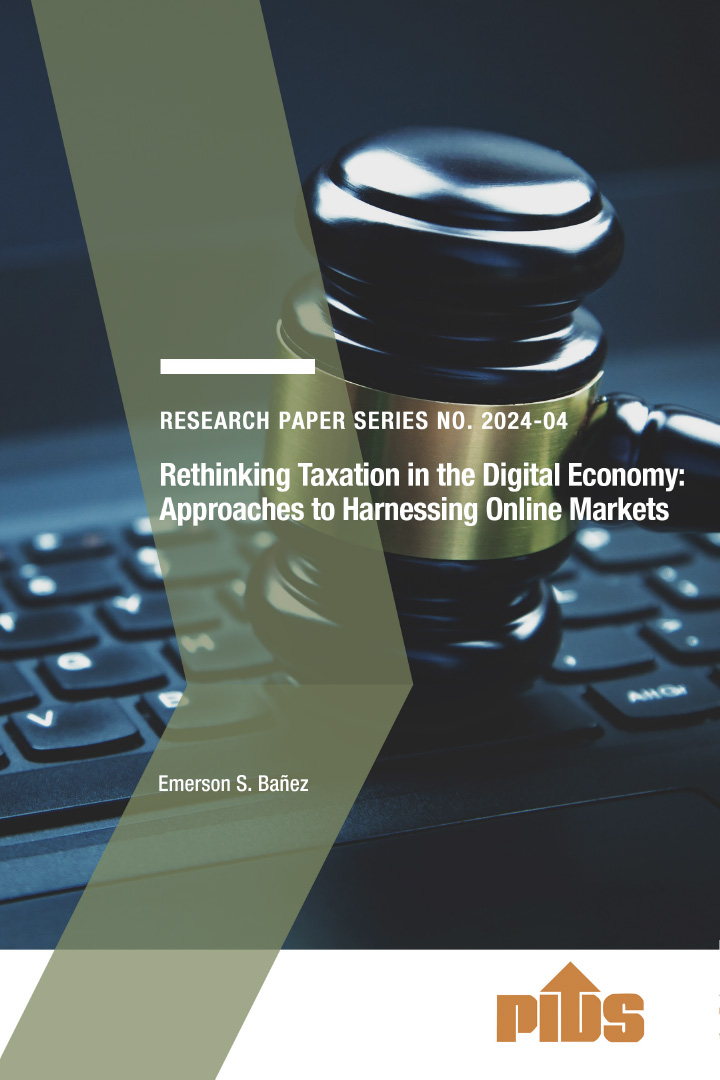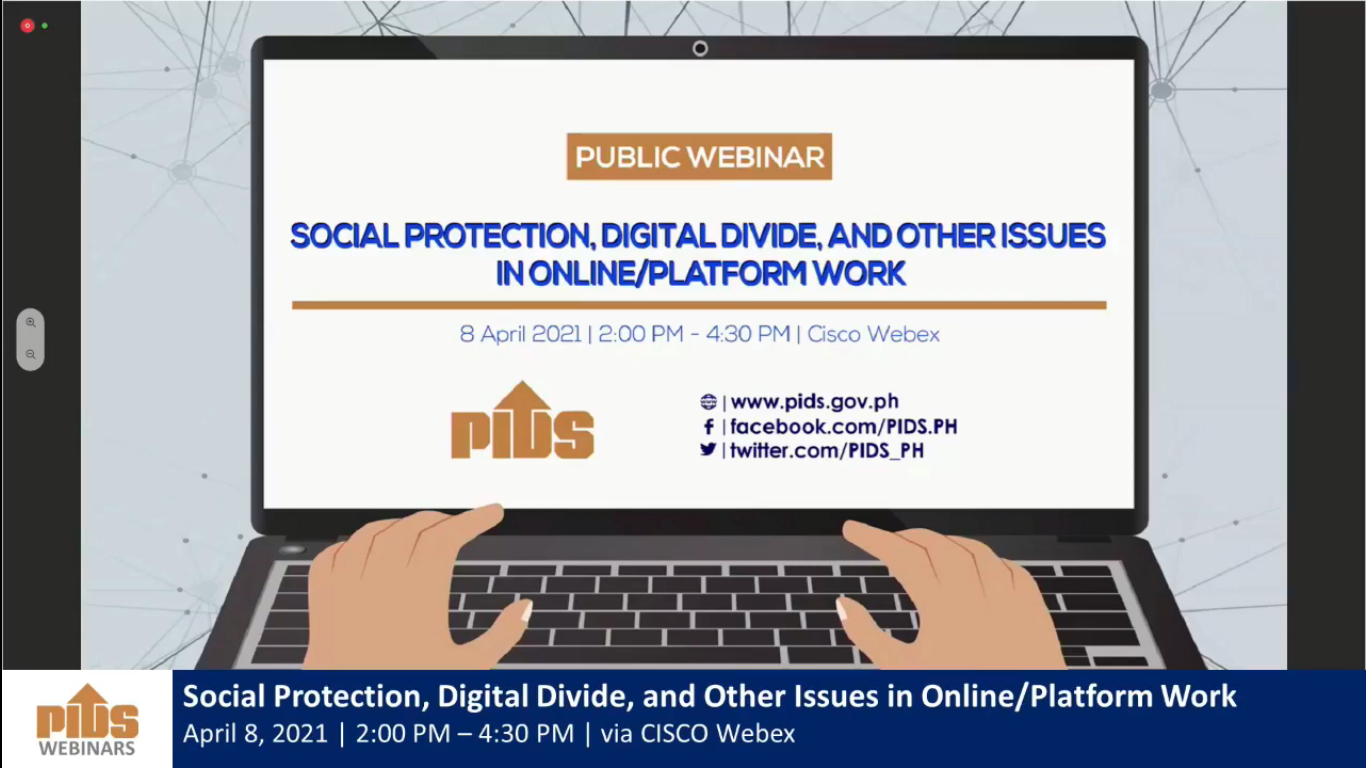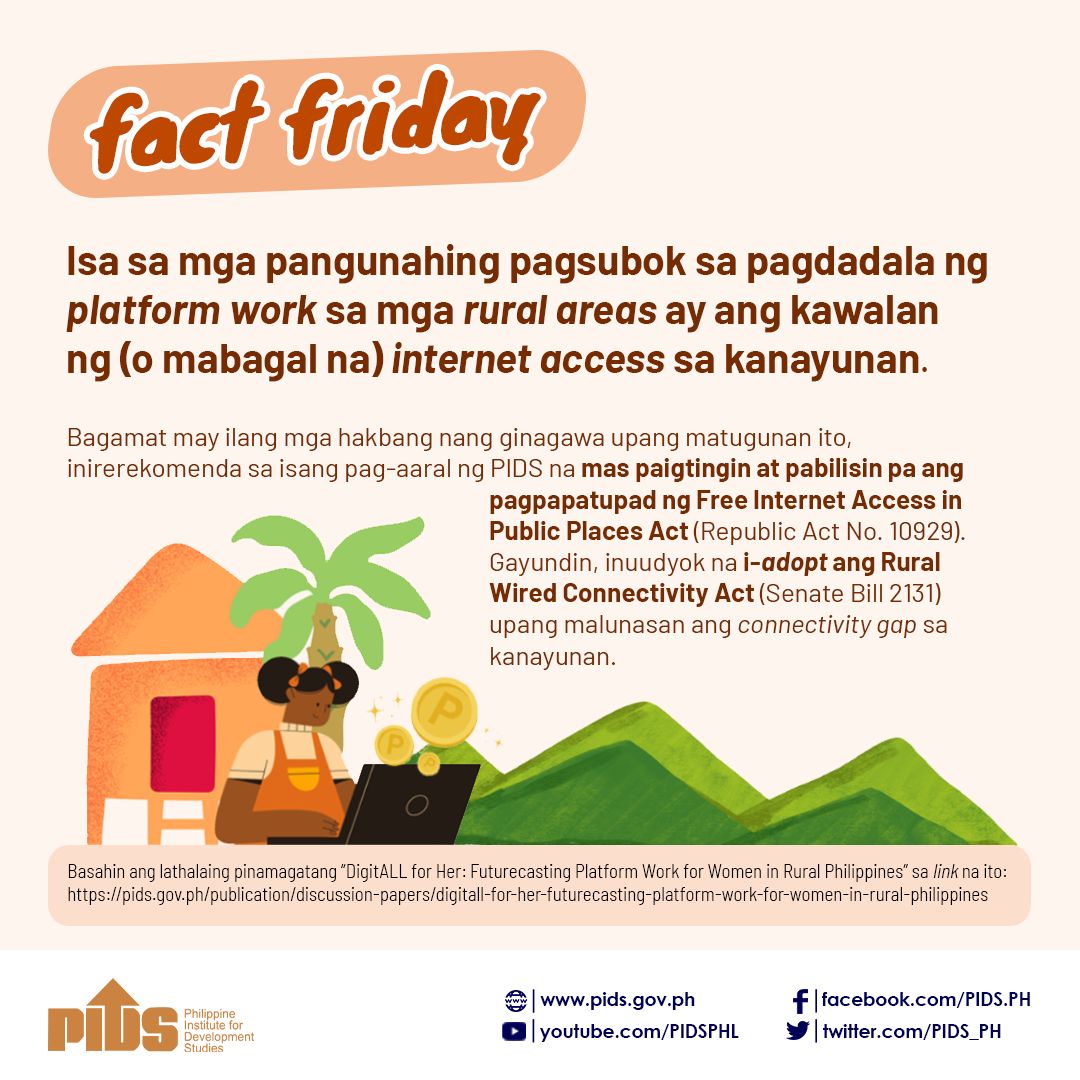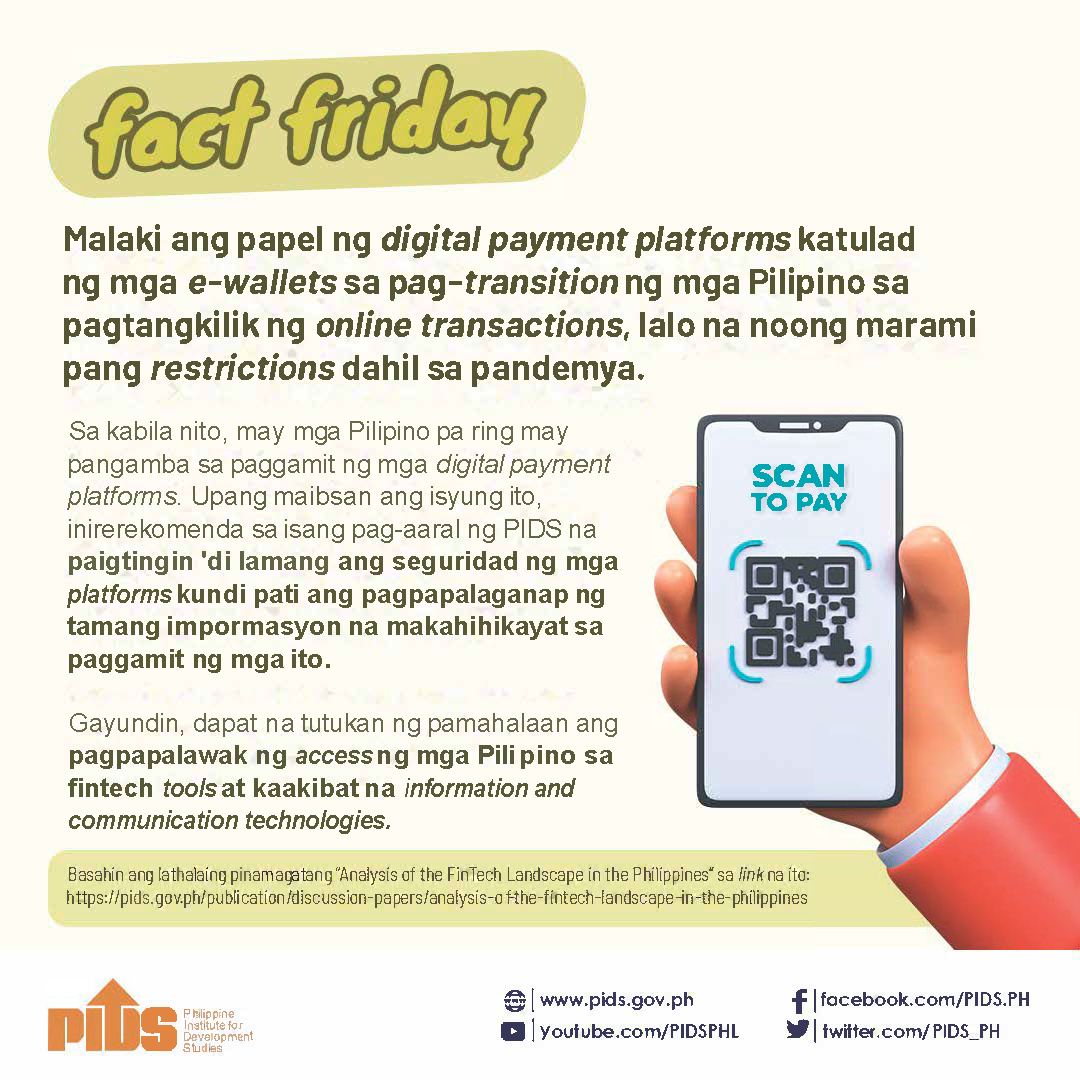For economic activities with online presence, it is business as usual.
But for many online sellers, the extension of the enhanced community quarantine in most of the country and the general community quarantine in some still means that those who do not sell essential items have taken a back seat and therefore have to suffer reduced sales. After all, people are not buying as much clothes, shoes, cosmetics because they are not leaving the house anyway.
But this does not mean that those selling essential items are doing well. Because many are unemployed while those who continue working are not spending as much because of the economic uncertainty thus the need to save money, even those selling essentials have suffered from reduced sales.
According to a study made by the Philippine Institute for Development Studies (PIDS), the wholesale and retail trade has a projected loss of a whopping P93.2 billion to P724.8 billion. The e-commerce sector has not been spared.
Shopee, the leading e-commerce platform in Southeast Asia and Taiwan, has launched a 200-million Seller Support Package program which aims to help Filipino SMEs and sellers navigate the current economic climate, during the time of the ECQ and beyond.
The program will support both local SMEs and sellers with existing online presence as well as those looking to expand their businesses online, through the provision of education, funding and subsidies. It includes lower commission and operational costs, increased sales and marketing support, and helping new sellers succeed online.
Shopee Philippines associate director Martin Yu pointed out that during these challenging times, it is important for the company to find ways to help sellers and SMEs maintain long-term business sustainability. He said that the launch of the Shopee Seller Support Package is part of their larger commitment to support their local communities through this COVID-19 period.
He revealed that they will continue to work closely with their extended network of partners, sellers, and shoppers to adapt their business and initiatives were required, as they remain united in getting through this together as one big community.
Like many retail shops, Small Wonders Page by seller Jennalyn Cristobal was initially affected by the ECQ. The seller needed to stop operations as courier services in her area in Sta. Maria, Bulacan halted their activities as well. But when one courier service resumed operations, so did her online store. Shopee offered her the Seller Support Package that lets her enjoy lowered platform fees, marketing and operations support, and additional benefits. She was also advised to do flash with high quantities upon learning that she sells essential items. The results were astounding that the seller created new product listings that are considered essential items and these were also flashed.
According to Shopee, the program gave Jennalyn and other sellers of Shopee hope despite the current predicament of the nation that they can still feel an ounce of normalcy and be able to continue with their lives and support their families.
Digitally savvy
Just yesterday, I was talking over the phone with someone who was so technologically and digitally challenged last year that he had no social media presence, no mobile phone communication apps, no internet at home, because he didn’t know how to go about it.
Now, he is all over. He now has an active Facebook presence, communicates via Viber and Messenger. And he says that it was good that he had internet service installed at his house before the quarantine was imposed last March. Otherwise, it would have been difficult for him to join us in our Zoom video conferencing sessions. He even was ahead of us in terms of conducting his classes online.
The quarantine imposed by government as a response to the COVID-19 pandemic wasn’t so bad for many people who continue with their daily lives with some semblance of normalcy since they are still able to work from home thanks to Zoom and other video conferencing apps, attend church services online thanks to Facebook Live and YouTube, buy food and other necessities online, see their loved ones through video chatting, pay their bills online, do mobile banking, watch movies and shows online thanks to Netflix, Viu, iWant, HBO Go to name a few, among others.
Digital technology adoption has become a necessity, in fact a basic need, during the pandemic.
A new survey commissioned by leading printing solutions provider Epson revealed that 86 percent of small and medium-sized enterprises (SMEs) in the Philippines have identified digital technology adoption as the way to improve business processes, especially customer experience.
According to Epson Philippines general manager for marketing Eduardo Bonoan, while SMEs in the country have generally begun to adopt digital technologies, more work is needed to help and encourage these companies to extend digital technologies further beyond customer-facing areas of the business.
Around 74 percent of Filipino respondents have embarked on the digital transformation journey and have mainly focused these efforts in the marketing and sales as well as customer interaction and servicing portions of their businesses.
In the retail sector specifically, 31 percent of Filipino SMEs in the retail, food and beverage (F&B) and hospitality sectors have deployed mobile projectors over interactive models, which can be used in malls and other environments to attract and deliver a superior customer experience.
SMEs in the Philippines are also moving closer to tracking and making decisions based on information available in real time. More than half (56 percent) of respondents reported being able to do this in the Philippines while another 51 percent noted that their organization can make quick decisions across departments and business processes on most occasions - outpacing their regional counterparts.
Despite this enthusiasm for digital transformation, respondents in the Philippines across industry sectors agreed that the upfront cost of new tools and technology, and the perception that replacing old processes and systems would be too difficult, were barriers to adopting new technologies.
Bonoan noted that in order for digital transformation to reach maturity in the Philippines, SMEs need greater awareness of the total cost of ownership beyond the initial investment.
Epson noted that digital transformation today requires more than the adoption of new technologies. It also means creating environments where businesses can leverage innovation to deliver meaningful change that drives positive business outcomes.
But for many online sellers, the extension of the enhanced community quarantine in most of the country and the general community quarantine in some still means that those who do not sell essential items have taken a back seat and therefore have to suffer reduced sales. After all, people are not buying as much clothes, shoes, cosmetics because they are not leaving the house anyway.
But this does not mean that those selling essential items are doing well. Because many are unemployed while those who continue working are not spending as much because of the economic uncertainty thus the need to save money, even those selling essentials have suffered from reduced sales.
According to a study made by the Philippine Institute for Development Studies (PIDS), the wholesale and retail trade has a projected loss of a whopping P93.2 billion to P724.8 billion. The e-commerce sector has not been spared.
Shopee, the leading e-commerce platform in Southeast Asia and Taiwan, has launched a 200-million Seller Support Package program which aims to help Filipino SMEs and sellers navigate the current economic climate, during the time of the ECQ and beyond.
The program will support both local SMEs and sellers with existing online presence as well as those looking to expand their businesses online, through the provision of education, funding and subsidies. It includes lower commission and operational costs, increased sales and marketing support, and helping new sellers succeed online.
Shopee Philippines associate director Martin Yu pointed out that during these challenging times, it is important for the company to find ways to help sellers and SMEs maintain long-term business sustainability. He said that the launch of the Shopee Seller Support Package is part of their larger commitment to support their local communities through this COVID-19 period.
He revealed that they will continue to work closely with their extended network of partners, sellers, and shoppers to adapt their business and initiatives were required, as they remain united in getting through this together as one big community.
Like many retail shops, Small Wonders Page by seller Jennalyn Cristobal was initially affected by the ECQ. The seller needed to stop operations as courier services in her area in Sta. Maria, Bulacan halted their activities as well. But when one courier service resumed operations, so did her online store. Shopee offered her the Seller Support Package that lets her enjoy lowered platform fees, marketing and operations support, and additional benefits. She was also advised to do flash with high quantities upon learning that she sells essential items. The results were astounding that the seller created new product listings that are considered essential items and these were also flashed.
According to Shopee, the program gave Jennalyn and other sellers of Shopee hope despite the current predicament of the nation that they can still feel an ounce of normalcy and be able to continue with their lives and support their families.
Digitally savvy
Just yesterday, I was talking over the phone with someone who was so technologically and digitally challenged last year that he had no social media presence, no mobile phone communication apps, no internet at home, because he didn’t know how to go about it.
Now, he is all over. He now has an active Facebook presence, communicates via Viber and Messenger. And he says that it was good that he had internet service installed at his house before the quarantine was imposed last March. Otherwise, it would have been difficult for him to join us in our Zoom video conferencing sessions. He even was ahead of us in terms of conducting his classes online.
The quarantine imposed by government as a response to the COVID-19 pandemic wasn’t so bad for many people who continue with their daily lives with some semblance of normalcy since they are still able to work from home thanks to Zoom and other video conferencing apps, attend church services online thanks to Facebook Live and YouTube, buy food and other necessities online, see their loved ones through video chatting, pay their bills online, do mobile banking, watch movies and shows online thanks to Netflix, Viu, iWant, HBO Go to name a few, among others.
Digital technology adoption has become a necessity, in fact a basic need, during the pandemic.
A new survey commissioned by leading printing solutions provider Epson revealed that 86 percent of small and medium-sized enterprises (SMEs) in the Philippines have identified digital technology adoption as the way to improve business processes, especially customer experience.
According to Epson Philippines general manager for marketing Eduardo Bonoan, while SMEs in the country have generally begun to adopt digital technologies, more work is needed to help and encourage these companies to extend digital technologies further beyond customer-facing areas of the business.
Around 74 percent of Filipino respondents have embarked on the digital transformation journey and have mainly focused these efforts in the marketing and sales as well as customer interaction and servicing portions of their businesses.
In the retail sector specifically, 31 percent of Filipino SMEs in the retail, food and beverage (F&B) and hospitality sectors have deployed mobile projectors over interactive models, which can be used in malls and other environments to attract and deliver a superior customer experience.
SMEs in the Philippines are also moving closer to tracking and making decisions based on information available in real time. More than half (56 percent) of respondents reported being able to do this in the Philippines while another 51 percent noted that their organization can make quick decisions across departments and business processes on most occasions - outpacing their regional counterparts.
Despite this enthusiasm for digital transformation, respondents in the Philippines across industry sectors agreed that the upfront cost of new tools and technology, and the perception that replacing old processes and systems would be too difficult, were barriers to adopting new technologies.
Bonoan noted that in order for digital transformation to reach maturity in the Philippines, SMEs need greater awareness of the total cost of ownership beyond the initial investment.
Epson noted that digital transformation today requires more than the adoption of new technologies. It also means creating environments where businesses can leverage innovation to deliver meaningful change that drives positive business outcomes.

